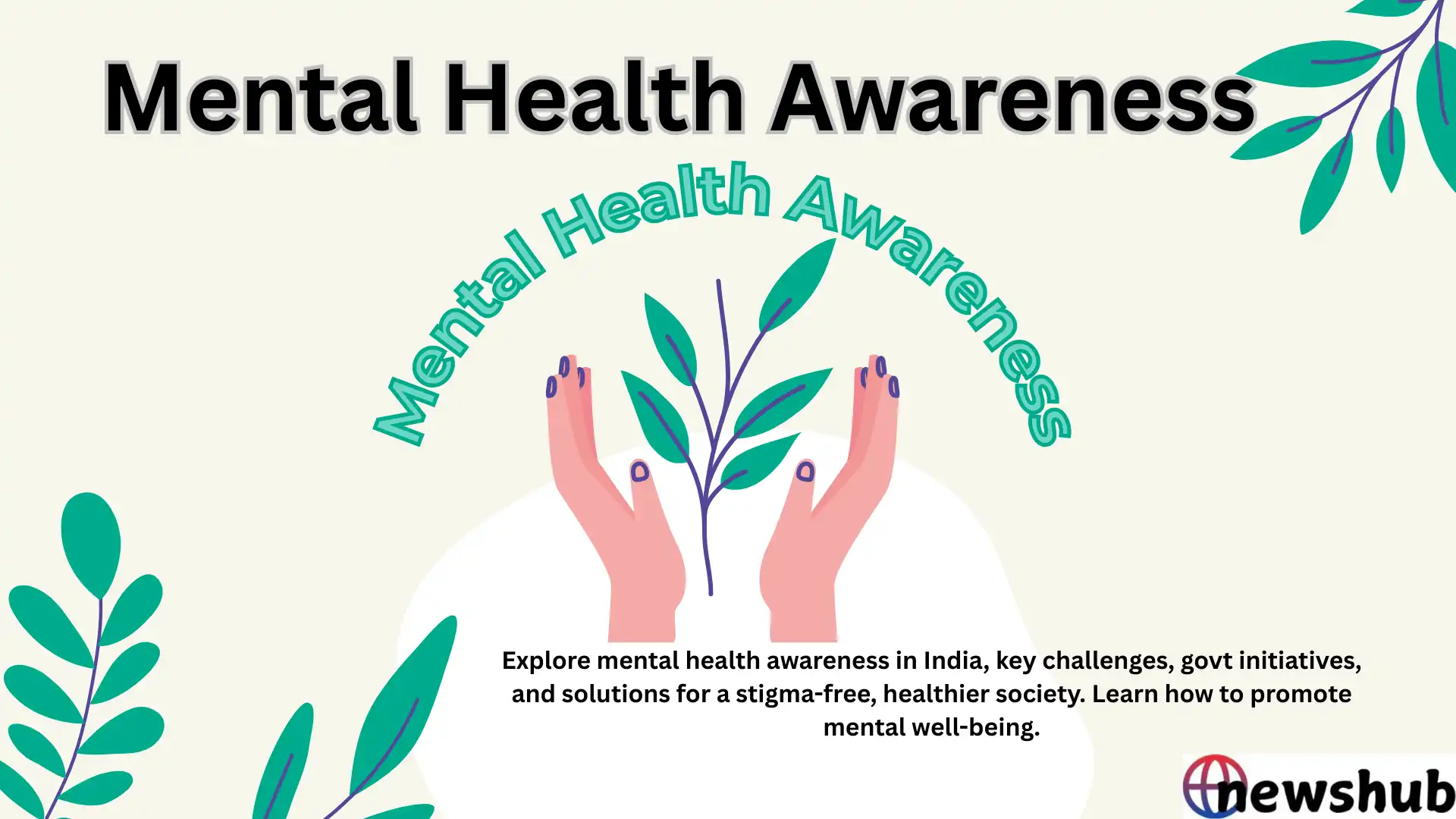Introduction to Mental Health Awareness:
Mental health awareness has become a crucial issue in modern India, yet it remains surrounded by stigma and misinformation. As India advances technologically and economically, the significance of mental well-being is becoming more evident. Addressing mental health awareness is essential for personal growth, social harmony, and national development. However, several challenges, including cultural taboos, a lack of resources, and limited access to mental healthcare, hinder progress.
The State of Mental Health Awareness in India:
India has one of the highest burdens of mental health disorders, including depression, anxiety, schizophrenia, bipolar disorder, and stress-related conditions. According to the World Health Organization (WHO), nearly 14% of Indians suffer from mental illnesses, with suicide rates increasing at an alarming rate. Unfortunately, most people do not seek professional help due to stigma, misinformation, and inadequate healthcare infrastructure. The COVID-19 pandemic further emphasized the importance of mental health awareness, as lockdowns and uncertainties severely impacted people’s mental well-being.
Key Challenges in Mental Health Awareness:
Stigma and Social Taboos:
- Many people still see mental illness as a weakness rather than a medical condition.
- Discrimination prevents individuals from seeking timely medical help.
- Fear of being judged leads many to suffer in silence.
Lack of Awareness and Education:
- People do not recognize mental health symptoms, leading to delayed treatment.
- Schools and workplaces often neglect mental health education.
- Misinformation leads to self-diagnosis and incorrect treatments.
Limited Access to Mental Healthcare:
- India faces a shortage of mental health professionals and facilities.
- Rural areas have fewer hospitals, psychiatrists, and psychologists.
- The urban-rural divide leads to inequalities in mental healthcare services.
Financial Barriers:
- Mental healthcare services are expensive and not adequately covered by insurance.
- Many families cannot afford therapy or psychiatric treatments.
- Limited government funding for mental health programs.
Workplace & Academic Pressure:
- High stress levels in corporate jobs and educational institutions contribute to mental health problems.
- The pressure to succeed leads to anxiety, depression, and burnout.
- Lack of mental health support in schools and workplaces.
Gender and Social Inequalities:
- Women, LGBTQ+ individuals, and marginalized communities face unique mental health challenges due to discrimination and violence.
- Gender norms and societal expectations add to stress and anxiety.
- Domestic violence and social oppression worsen mental health issues.
Government and Private Initiatives:
National Mental Health Programme (NMHP):
- Aims to improve mental healthcare facilities across India.
- Focuses on early diagnosis and treatment.
- Works towards integrating mental health services into primary healthcare.
Mental Healthcare Act, 2017:
- Ensures rights and dignity of individuals with mental health conditions.
- Mandates insurance coverage for mental health treatments.
- Decriminalizes attempted suicide, treating it as a mental health issue rather than a crime.
Helplines and Digital Counseling Services:
- Government and NGOs have launched helplines like Tele-MANAS and iCall.
- Online counseling platforms make therapy more accessible.
- 24/7 emergency response services for suicide prevention.
Ayushman Bharat Health and Wellness Centers (AB-HWCs):
- Integrates mental healthcare into primary healthcare systems.
- Aims to provide affordable treatment nationwide.
- Focuses on holistic well-being, including stress management workshops.
The Role of Society in Promoting Mental Health Awareness:
Educational Campaigns:
- Schools, colleges, and universities must include mental health education in their curricula.
- Teaching students coping strategies can prevent long-term issues.
- Workshops on stress management and emotional intelligence.
Workplace Support Systems:
- Companies should provide employee assistance programs and mental health leave.
- Encouraging work-life balance reduces workplace stress.
- Mental health awareness training for HR and managers.
Open Conversations:
- Public figures, influencers, and media can help break mental health stigmas.
- More awareness will encourage people to seek professional help.
- Promoting self-care and mental well-being through mainstream media.
Community Involvement:
- Awareness programs at the grassroots level can help people understand mental health.
- Local initiatives can encourage early diagnosis and treatment.
- Support groups and peer counseling networks for better outreach.
Use of Technology:
- AI-driven chatbots, mental health apps, and telepsychiatry services can improve mental healthcare access.
- Online platforms provide therapy options to remote and rural areas.
- Digital therapy tools like meditation and self-help applications.
The Future of Mental Health Awareness in India:
With increasing awareness, policy advancements, and societal support, mental healthcare in India is improving. However, sustained efforts are needed to ensure mental well-being is treated equally to physical health. The integration of mental health services into primary healthcare, increased research funding, and training of mental health professionals will be crucial in shaping India’s future. Encouraging public-private partnerships and leveraging digital healthcare solutions will also enhance accessibility and affordability.
How India Can Improve Mental Health Awareness Further:
- Expansion of government programs: Increasing funds and coverage for mental health initiatives.
- Encouraging local NGOs and community support groups: Strengthening mental health advocacy.
- Improving digital mental healthcare: Promoting online therapy and telemedicine solutions.
- Media representation: Promoting positive discussions on mental health awareness in TV shows, movies, and news.
- Incorporating mental health policies in corporate sectors: Making workplace mental health a priority.
Conclusion:
Mental health awareness in modern India is gradually gaining traction, but there is still a long way to go. By addressing the stigma, promoting education, and leveraging media campaigns, India can create a more supportive environment for those dealing with mental health challenges. It is essential to continue these efforts to ensure that mental health is recognized as a crucial aspect of overall well-being.
Prioritizing mental health awareness is not just a necessity—it is a responsibility that can shape the nation’s overall well-being and development.
You may also like to read….

